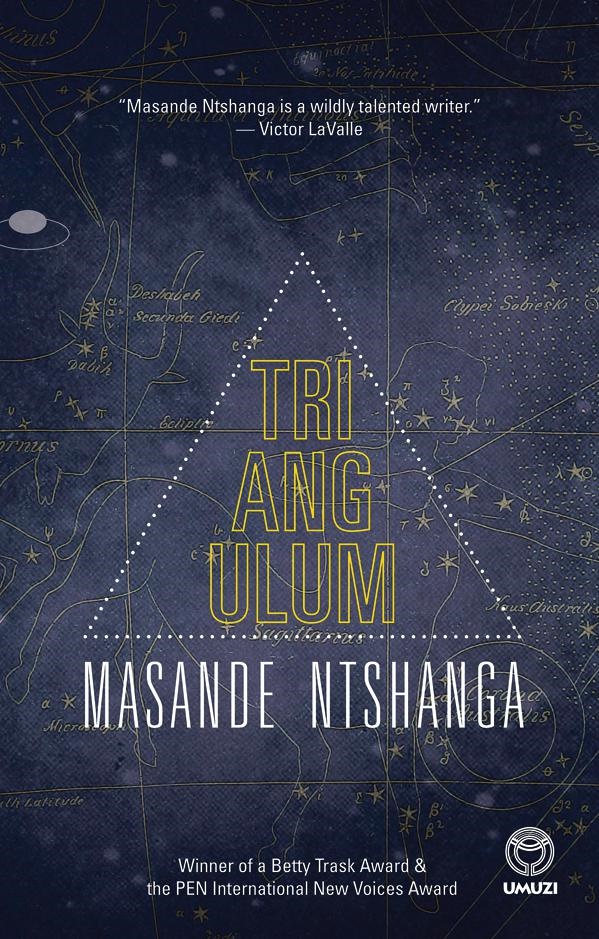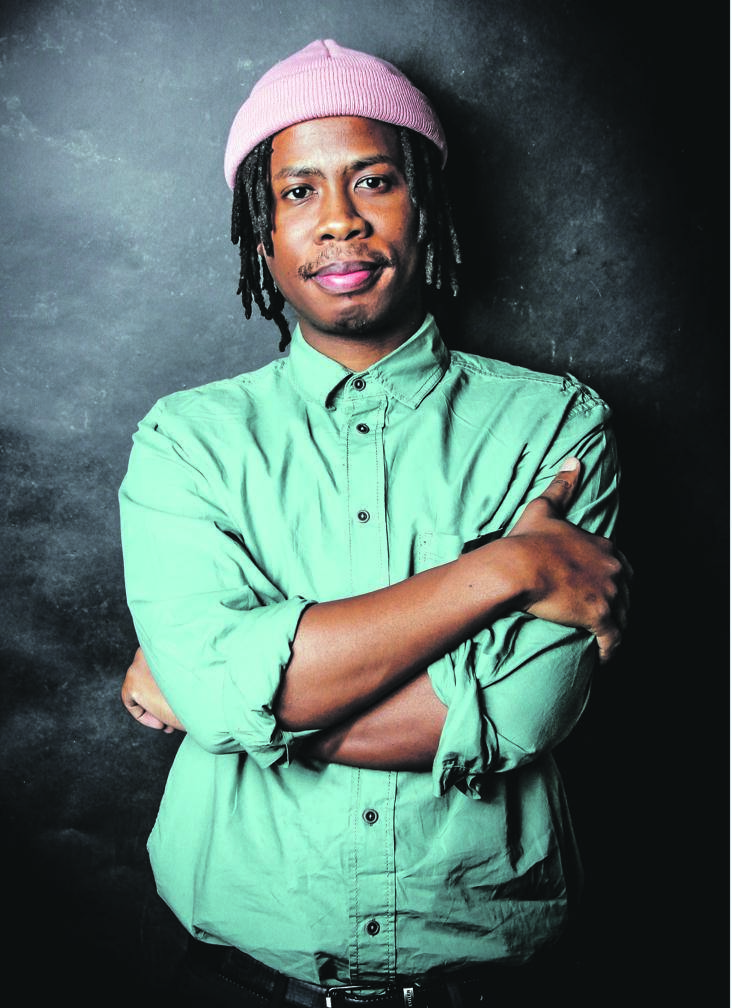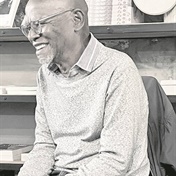
Award-winning young novelist Masande Ntshanga has released a second book – a curious blend of everyday black life and sci-fi. A troubled schoolgirl maths prodigy is haunted by her mother’s disappearance when she’s visited by a strange apparition, ‘the machine’. In this extract, she and her partner, D, explore a future, dystopian Johannesburg
Most nights, I watched D bearing down on her sketch work and research. She was often hunched over from midnight through to morning, while I slept, tinkered on the computer and clocked in at work.
The layer of insulation between us didn’t hurt. It was for a good cause, I thought, and I was also used to being alone. One evening, D went out without telling me. A Friday. She didn’t come back that night.
I made breakfast the following morning. The flat was small enough for me to sense her absence. I prepared a batter for pancakes. I diced watermelon and paw-paw into a ceramic bowl.
Triangulum by Masande Ntshanga
Umuzi
384 pages
The sun rose over Kensington, streaking sunlight across the mural. I poured myself a glass of water and sat down on the couch, facing out to the balcony. Without warning, I felt the need to scan all the devices in our flat. I hooked my phone up to a scanning program on my computer; it took five minutes to discover a surveillance app.
I opened D’s laptop – she never locked it – and ran the same scan, with the same results. As I’d suspected. I did an internet search and opened the source code: it was a tracking program, using GPS to create a timeline of our movements over the past three months.
I didn’t bother looking further. I knew it was the reason the cell hadn’t seen the need to contact me. I deleted the app and tried to put it out of my mind, but it lingered. I didn’t know what I was a part of, I thought. I never had.
Then the door opened. “I went out for coffee,” D said, handing me an Americano. “I also got champagne,” she added, taking it out of a plastic bag with a litre of orange juice. We settled on the floor around the coffee table with our plates and mimosas.
Through a slat of sunlight, I took in the rails on D’s forearms. Then I asked her if she’d ever been to Narcotics Anonymous, which seemed to surprise her. “Is this about last night?” “No. I’d like to know your thoughts on it, that’s all.” D sighed. “It’s not an interesting question.” “It is to me.” “I doubt that.” “It is.”
“Then let’s turn it into a game,” she said. “Since this is about me back then, interrogate me and I’ll answer as the person I used to be.” “Okay,” I said. “What do you think about rehab?”
“I don’t know. Like most people, I often thought I was meant to be happier.” “But you don’t now?” “No. Now that sounds inane. I had to knock it off when I started painting.” “I don’t think I understand that. You’re saying there’s no point in working for happiness?” D shook her head. Her legs were crossed in her paintspattered dungarees.
“It won’t last,” she said. “How a person is is how a person is.” I took a sip of champagne, thinking about it. “Hold on,” I said. “I still don’t understand. I mean, what about your health? The fact that you could die.” “Then maybe that’s what I want to be doing at the time. That’s the choice I’m making.”
I nodded, feeling like I might have understood her. We finished the rest of the meal in silence. Then D said, “I’m different now, though. I can see I was being a casuist, delusional. I went to a centre in Wynberg a few times, but it didn’t take. I realised later that I wanted to get well, but I didn’t want to reintegrate into society.”
“You wanted things to be different.” “Exactly.” D smiled. “I wasn’t using last night,” she said. “I found a studio space.”
The studio was close, in a walk-up a block and a half from our flat. Later, I’d bring her meals there after work, and sometimes I’d bring along a bottle of wine. We’d talk for hours, and I’d convince her to talk me through a new painting.
That morning, though, the walls were bare. We christened the space with what was left of the orange juice and champagne, sitting on plastic crates and drinking out of paper cups that spilt whenever we toasted.
As we took in the blank walls and high ceilings, D detailed her intentions for the place, speaking her plans into a ghostly presence over the pocked walls.
Her enthusiasm was infectious, her smile bright enough to turn the garret into an atrium. Then she said there was something else she wanted to show me and we called a cab.
The sun still hung over the grid, burning down on us from a distance of 150 million kilometres. It was an indifferent source of power, I thought, as I pulled down the sunshade in the passenger seat, sustaining mammalian life without ever intending to.
It bounced in a shimmer against the tons of steel and concrete that marked the architecture of the metropolis, drawing perspiration from the children who danced for change at its intersections.
The cab took us east to Braamfontein, parking below the Nelson Mandela Bridge. D asked me to follow her and I did. Soon we were standing outside an art gallery: a six-storey building with large glass panels built into a brick façade.
There was a cigarette vendor on either side of us, and the street was beginning to fill up.
Up ahead, the road had been cordoned off, making provision for a large green carpet that had been unrolled on the tarmac. It was a pop-up market – cluttered with the bivouacs and banners of corporations in competition.
Through torrents of static, advertisements were projected over the heads of the metropolitan stream, coaxing them into products from data companies, international breweries and tobacco titans.
Ever since regulations had been loosened to accommodate Zoning, the nation’s three largest multinationals had been untrammelled in their growth and influence, appealing to investors and end consumers alike, and balancing the fiscus between carcinogens and communication. I turned back to the gallery.
“For as long as I can remember,” D said, “I’ve wanted to be an artist. Even after I joined The Returners and the world grew larger, that didn’t change. That’s what I wanted to show you. There’s being an artist, and then there’s this side of it. This is what I’m choosing to be a part of.” I couldn’t think of what to say.
“Did you still paint, after you joined The Returners?” “No.” D shook her head. “I read, instead. But last night, into this morning, I filled two canvasses; they’re the best paintings I’ve ever done.”
“What’s changed?” “I don’t know.” We started towards another cab. “I think it’s what’s happening between us.”




 Publications
Publications
 Partners
Partners









